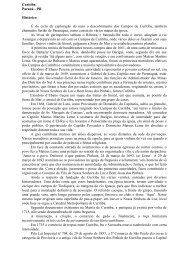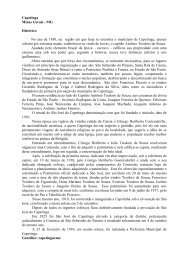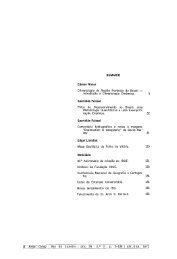STATÍSTICAS NAS MÉRICAS - Biblioteca - IBGE
STATÍSTICAS NAS MÉRICAS - Biblioteca - IBGE
STATÍSTICAS NAS MÉRICAS - Biblioteca - IBGE
You also want an ePaper? Increase the reach of your titles
YUMPU automatically turns print PDFs into web optimized ePapers that Google loves.
Introdução / introduction<br />
modo a verificar suas fronteiras de<br />
realizações, fazendo emergir suas<br />
limitações e potencialidades. Então,<br />
em meio a essa situação dominante,<br />
tomar as estatísticas como objeto de<br />
estudo, vendo-as em suas intimidades,<br />
e nas intimidades das instituições que<br />
detêm ou disputam o monopólio<br />
de sua produção e análise, foi<br />
algo de fato novo. Trata-se de um<br />
novo recorte epistemológico, que<br />
avança na construção social de um<br />
conhecimento, o conhecimento de<br />
como as sociedades quiseram se ver,<br />
e de como, no amparo das ciências<br />
e das técnicas, puderam se ver pelos<br />
números e agregações estatísticas.<br />
Desses estudos, não raro, emergem<br />
melhores apreensões das histórias<br />
nacionais, quando não mesmo<br />
completas revisões delas, com novos<br />
enfoques e aportes historiográficos.<br />
Falar no estudo das estatísticas<br />
significa falar do estudo das trajetórias<br />
das instituições estatísticas, das<br />
tradições nacionais dos sistemas de<br />
classificação e mensuração, da cultura<br />
científica de um grupo distinto de<br />
profissionais, sem esquecer a utilização<br />
social das estatísticas como exercício<br />
ou contestação das formas de<br />
dominação. Uma perspectiva analítica<br />
desta ordem implica discutir as razões<br />
de terem sido feitas e os modos<br />
como foram feitas e apropriadas as<br />
estatísticas, seguindo uma extensa<br />
gama de contribuições teóricas, que<br />
buscam desnaturalizar conceitos e<br />
categorias de percepção da realidade,<br />
para ampliar a compreensão sobre a<br />
racionalidade dos processos científicos.<br />
Imbuídos deste fim, diversos estudos<br />
pioneiros sobre as estatísticas fizeram<br />
new to take statistics as an object of<br />
study, closely watching them and the<br />
institutions that produce and analyze<br />
them. This new epistemological<br />
approach progresses towards the<br />
social construction of knowledge, for<br />
insights into how societies wanted<br />
to see themselves, and how, helped<br />
by sciences and techniques, they<br />
were able to see themselves through<br />
numbers and statistical aggregations.<br />
These studies generally originate better<br />
apprehensions of national histories,<br />
at times complete reviews on them,<br />
with new focuses and historiographic<br />
contributions.<br />
The study of statistics comprise the<br />
trajectories of statistics institutions,<br />
national traditions of classification and<br />
measurement systems, the scientific<br />
culture of a group of professionals,<br />
and the social use of statistics to<br />
exercise or deny forms of domination.<br />
Such an analytical perspective involves<br />
discussing why and how statistics<br />
were produced, following a wide<br />
range of theoretical contributions<br />
that try to denaturalize concepts and<br />
categories of reality perception to<br />
better understand the rationality of<br />
scientific processes. To this end, several<br />
pioneer studies on statistics used<br />
different theoretical references, such<br />
as Michel Foucault’s archaeology of<br />
knowledge, Pierre Bourdieu’s market<br />
of symbolic goods, and Bruno Latour’s<br />
ethnography of science. Authors like<br />
Alain Desrosiéres, Theodore Porter,<br />
Ian Hacking, Nikolas Rose, Donald<br />
Mackenzie, Stephen Stigler, Joseph


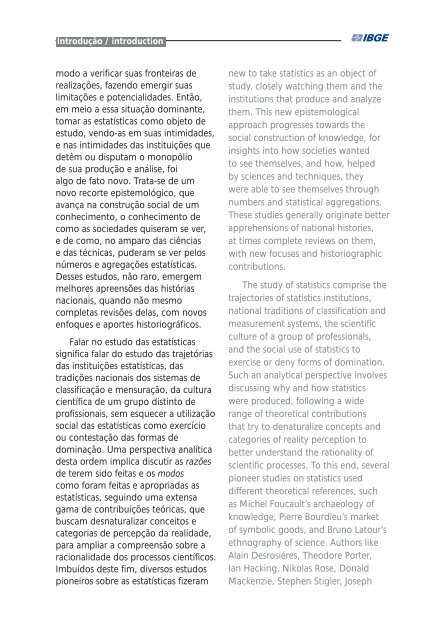
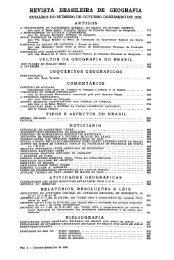
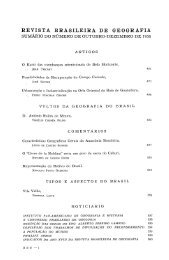



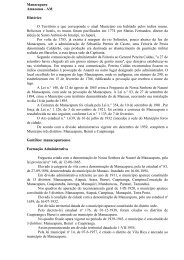
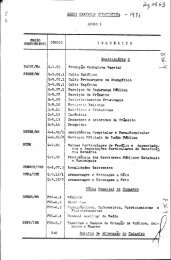
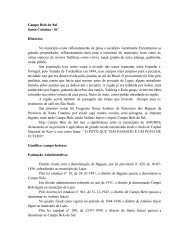
![Manual de Estatística [Fillippo Virgillii] - Biblioteca do IBGE](https://img.yumpu.com/17097551/1/185x260/manual-de-estatistica-fillippo-virgillii-biblioteca-do-ibge.jpg?quality=85)

